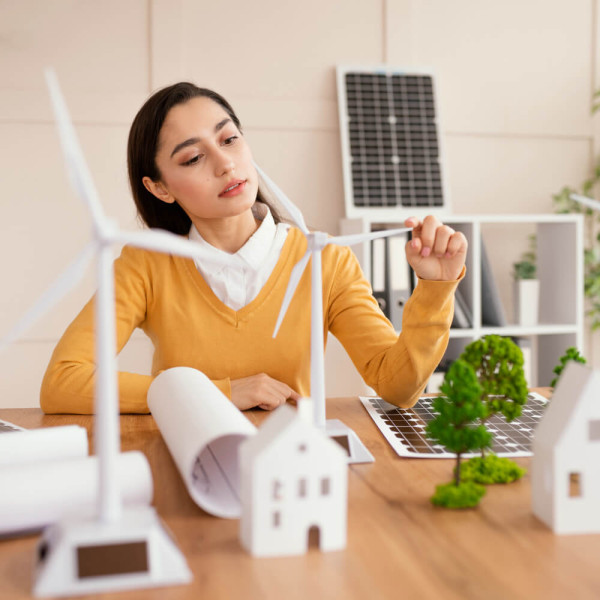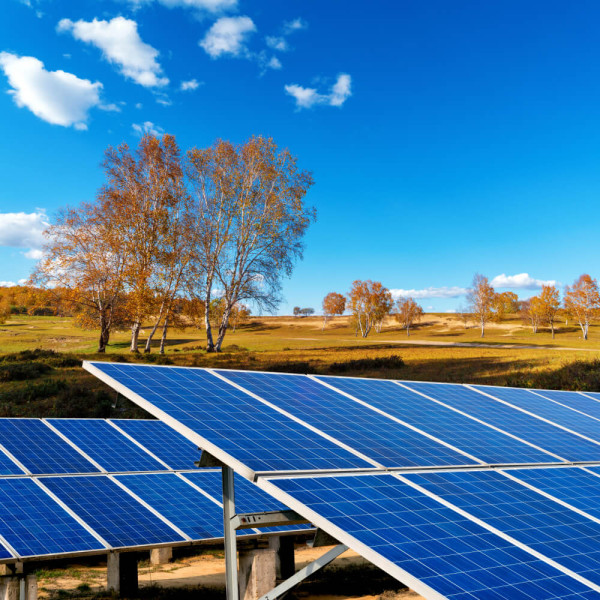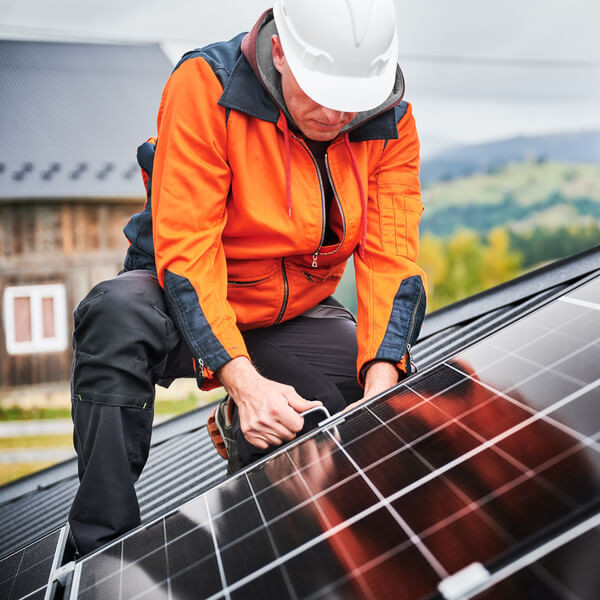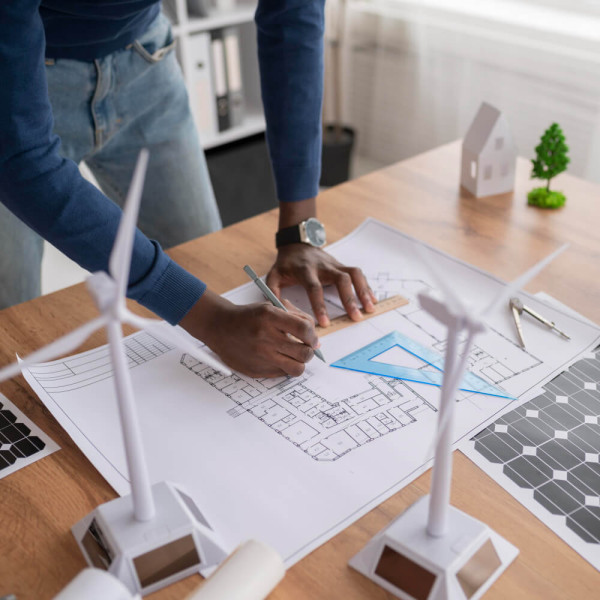0203 193 8888
0203 193 8888
Yes, Solar panels are a great investment for long term financial savings particularly when energy prices are unpredictable and inflated. They have become increasingly popular due to their numerous advantages, making them a great option for homeowners and businesses alike. One of the most prominent reasons for considering solar panels is the potential for substantial long-term cost savings. Although the initial installation cost can be significant, solar panels can significantly reduce or even eliminate your electricity expenses over time. In some cases, surplus energy generated by the panels can even be sold back to the grid, providing an additional source of income.
In addition to the financial benefits, solar panels also make a significant contribution to a cleaner environment. By harnessing solar power, they generate electricity without emitting harmful greenhouse gases or pollutants, reducing your overall environmental impact. This eco-friendly choice benefits not only the planet but also your local community. Many governments and utilities offer incentives and tax credits to promote solar panel adoption, making it an even more attractive and cost-effective option.
The decision of whether solar panels are worth it often hinges on your unique circumstances. If you live in a sunny area, possess a suitable roof or location for installation, and can take advantage of available incentives, solar panels can represent a wise investment with long-term rewards. They not only lead to savings on your energy bills but also play a crucial role in advancing a more sustainable and environmentally friendly future.
It is also a good idea to consider the use of Solar Panels when creating a new build - with this you are able to design your developments to have the space allocated for solar panels. It also allows you to fully weigh up all the design and fitting options to make your new space work for you.
In the UK, the cost of solar panels can vary depending on factors like system size, panel type, and installation expenses. As of our last update in January 2025, a typical residential solar panel system in the UK could cost between £4,000 and £7,000, excluding incentives. The specific size and quality of panels, along with installation complexity and labour costs, all contribute to the final price.
To get an accurate estimate, it's advisable to consult with us as we can provide personalised quotes based on your unique requirements and location. Additionally, the UK offers various government incentives, such as the Feed-in Tariff (FiT) and the Smart Export Guarantee (SEG), which can help offset the cost of solar panel installation and reduce the payback period. Keep in mind that solar panel prices have been decreasing over time, making solar energy an increasingly cost-effective and environmentally friendly choice in the UK.
Get In Touch 0203 193 8888
0203 193 8888

The payback period for solar panels, the time it takes to recover their initial cost, varies based on several factors. These include the upfront expense of the solar panel system, solar irradiance in your region, your electricity consumption, available financial incentives, and local energy prices. Typically, residential solar panel systems have payback periods ranging from 5 to 12 years.
The initial investment plays a crucial role, with higher system costs extending the payback period. Regions with ample sunlight, like Eastbourne and Cornwall, tend to have shorter payback periods due to increased electricity generation. Higher energy consumption and available government incentives also affect the payback period. Additionally, areas with higher energy prices make solar panels a more financially attractive choice.
Solar panels typically have a long lifespan, often exceeding 25 years, and continue to generate electricity well beyond their payback period. This means you can enjoy reduced or even free electricity bills for many years after the system has covered its own costs. In summary, the payback period for solar panels is contingent on your specific circumstances, but they generally offer a wise long-term investment, both economically and environmentally.
Get In Touch 0203 193 8888
0203 193 8888Take the first step towards clean, sustainable energy and request a quote today.
Get In Touch 0203 193 8888
0203 193 8888Solar panels offer annual savings in two key areas. Firstly, they reduce the amount of electricity you need to purchase from the grid, thus decreasing your energy bills. Secondly, you can earn money through payments from the Smart Export Guarantee (SEG).
The annual savings from solar panels are not solely reliant on tariffs. In London, a photovoltaic system can save you approximately £180 to £565 per year by reducing your energy bills. Similarly, in locations like Manchester and Stirling, savings can range from £170 to £520 annually.
The amount of money you can save depends on how and when you use the solar-generated electricity. If you use your appliances during the day when the sun is shining, you'll maximise your savings. However, if you primarily use electricity after sunset, you may still benefit from solar panels, but you'll need to draw some power from the national grid, which can affect your overall savings. The annual savings also vary based on the size of your solar panel system, with a 3 kW system saving around £160, a 4 kW system saving about £270, a 5 kW system saving roughly £320, and a 6 kW system yielding approximately £430, assuming the use of 250W panels and the average household energy consumption in the UK.
Get In Touch 0203 193 8888
0203 193 8888

Previously, the government would reward you through the Feed-In Tariff (FIT) programme. With the FIT, power companies would pay you both a generation tariff and an export tariff, with government-fixed rates. You would earn 4p per kWh for what you generate and 5.38p per kWh for the excess energy you give back to the grid.
UK companies have offered a free solar panel scheme in the past where they would install PV panels on your roof free of charge, enabling you to get free solar power. In return, these companies would collect the FIT payments to make a profit.
The FIT came to an end in 2019, however, and no new applications are being accepted, meaning this free solar panel scheme is no longer run by businesses.
Under the Smart Export Guarantee; the new solar PV incentive scheme, how much you will save is much more varied. Unlike the FIT, the SEG doesn’t regulate rates, letting energy companies decide for themselves how much they will be. These companies also only have to offer tariffs for exported energy, not generation.
Get In Touch 0203 193 8888
0203 193 8888
Our membership with HIES means your money is covered by a bona fide insurance-backed guarantee from point of sale to two post-installation.

We only use tried and tested suppliers, so you know your investment is protected for years to come.

Our commitment to you is that we will only use the right people for the job. So you have peace of mind knowing that our tradespeople are some of the best.
The number of solar panels needed to power your house depends on several factors, with the most significant one being your energy consumption. As a general rule of thumb, it takes approximately four solar panels per kilowatt of energy required.
To put this into context, most solar panels produce around 250W every four hours of full sunlight. For example, a 3kW PV system is typically sufficient for an average household with around three residents. Using the rule of thumb, a system of this size would require approximately 12 solar panels.
For larger households or those with higher energy needs, a 4kW system is more common and can serve three to four residents. Following the same formula, a 4kW system would typically necessitate around 16 solar panels.
It's important to note that you can also opt to power only a portion of your home with a solar PV system rather than the entire house. This approach would reduce the number of solar panels required, but it may impact the overall savings and profitability in the long run. The exact number of panels needed for your specific situation should be determined based on your energy consumption, location, and efficiency of the panels used.
The number of Solar Panels you are able to have installed on your property also depends on the space that you have. There are 2 main routes that you can take when looking to get Solar Panels installed - either choosing to have them installed on the ground or on your roof. The better option depends on your own personal situation and how much space you have to offer. If you have a large garden space that isn’t being put to use it may make more sense to use a ground mounted system. If you are unsure it's a great idea to get in contact with a solar professional who can outline all the best choices for your property.
It’s not only residential properties that can benefit from solar panels - and a typical commercial property will already have the required characteristics needed to create an efficient system and power your business.
By taking advantage of your building you are able to save £1000s on your annual bill and in some cases even get paid for your electricity. As a general rule of thumb if your office space has the following space:
In the past, 'free' solar panel schemes, known as rent-a-roof initiatives, were common. These programs were operated by companies seeking to take advantage of the feed-in tariff (FIT), a scheme that ensured payments for electricity generated using renewable technologies like solar power. Under these arrangements, companies would lease a homeowner's roof for 20-25 years and, in exchange, install and maintain solar PV panels on the roof at no upfront cost. Homeowners, in turn, enjoyed the benefit of free electricity generated by the solar system.
However, the landscape has changed significantly, and there are now very few, if any, free solar panel schemes available. This transformation is primarily due to substantial reductions in feed-in tariff payments in January 2016, ultimately leading to the termination of the program in March 2019. As a result, businesses have become less inclined to offer free solar schemes. Instead, there's a rising trend in solar buyback schemes, which offer alternative incentives and advantages, particularly for homeowners who already have solar panels installed.
Today, government-funded grants for eligible households remain one of the few options for obtaining assistance with the cost of solar panel installation. These grants aim to promote the adoption of renewable energy technology, albeit on a more limited scale than the previous free solar panel schemes.
Yes, solar panels can indeed increase a property’s value. Numerous studies have demonstrated that homes equipped with solar installations tend to have higher resale prices compared to similar homes without solar panels. The extent of this increase varies based on factors such as the property’s location, the size of the solar panel system, and the local real estate market. Solar panels offer several advantages to potential buyers, including reduced electricity cost, a commitment to environmental sustainability, and potential government incentives, making the property more attractive and valuable.
There is not an exact science to work out exactly how much the solar panel system will increase the property house as it will differ from region to region. Other significant factors that will vary is the quality and age of the solar panel system as well as the quality of the installation and if it makes the house look more aesthetic. Real estate professionals and appraisers familiar with the local market can provide more precise assessments of how solar panels may impact the value of a particular property in a given area.